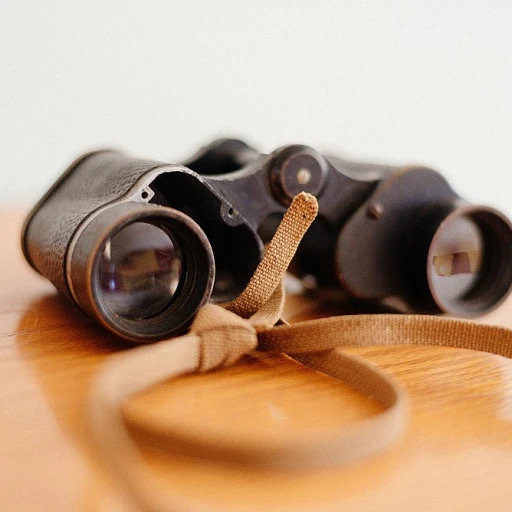
Understanding the Role of a Security Guard
Security Guard Role: Duties and Expectations
Understanding the role of a security guard is crucial for crafting an effective resume. As a security guard, your job centers around ensuring the safety and security of individuals, property, and information. Security guards are typically employed in a variety of environments including private companies, residential areas, and public spaces, each with unique security demands and protocols. Security guards are responsible for monitoring access control to secure premises, responding to emergency situations, and collaborating with law enforcement if needed. The job often requires a deep understanding of safety regulations, attention to detail, and exceptional conflict resolution skills. Depending on the position, some guards may need to manage crowd control during events or handle armed security duties. Recognizing the specific level of security required for each role can significantly influence how you draft your guard resume. For instance, an entry-level security position may focus more on basic training and familiarity with safety processes, while a guard supervisor or armed security position could demand extensive professional experience and specialized certifications. Aligning your resume with the requirements and expectations of the security guard role not only demonstrates your understanding of the job but also enhances your appeal to potential employers. Having a clear picture of the role can guide you in highlighting relevant skills and experience, effectively framing your professional summary, and tailoring your resume to fit distinct security roles. Understanding the implications of pre-adverse action in talent acquisition can also provide valuable insights into the hiring process, helping both candidates and employers maintain compliance and fairness throughout recruitment.Essential Components of a Security Guard Resume
Placing Emphasis on Key Resume Elements
When you're crafting a security guard resume, honing in on essential elements is crucial to catching the eye of potential employers. This is where your opportunity lies to transform your document into a compelling narrative of your professional experience and qualifications.
- Contact Information: Ensure your full name, phone number, and email address are clearly displayed at the top. These details make it easy for employers to reach out for further discussion.
- Professional Experience: List your past job titles and employers, accompanied by bullet points that detail your responsibilities and accomplishments. Highlight your involvement in tasks such as emergency response or access control to demonstrate your hands-on experience.
- Skills and Certifications: An effective resume not only lists your certifications but also shines a light on your skills, such as conflict resolution and attention to detail. If you possess specialized training in armed security or entry-level security tasks, make sure to feature these qualifications prominently.
- Educational Background: While not all security guard roles require advanced education, including any relevant courses or training you've completed, serves to strengthen your application.
Effective presentation of these components will undoubtedly elevate your resume to stand out in a crowded job market. If you're seeking more insights on how navigating pre-adverse action influences talent acquisition, be sure to explore this comprehensive guide.
Highlighting Relevant Skills and Certifications
Showcase Your Abilities in Crisis Management
When crafting your guard resume, it is crucial to spotlight the relevant skills that make you a desirable candidate for a security officer role. Employers are particularly interested in your capability to handle potentially volatile situations with calm and efficacy, underwriting the safety of people and property in your charge.
- Conflict Resolution: As security guards frequently interact with individuals, having strong conflict resolution capabilities is crucial. Include examples of past professional experience where you successfully managed disputes and prevented escalation.
- Emergency Response: Highlight any training or experience you have regarding emergency procedures. Understanding protocols and maintaining composure during emergencies is essential for anyone in a security role.
- Access Control: Given the importance of maintaining secure premises, possessing skills in access management is a key attribute. Mention any experience you have with access control systems or procedures.
Certifications: A Plus in Your Guard Resume
Adding relevant certifications to your resume can significantly boost your appeal to potential employers. Certifications not only reflect your dedication to professionalism but also your commitment to ongoing education in best practices for security guards.
- Basic Security Officer Training: Whether you're pursuing an entry level security role or aiming for armed security positions, completing basic training is a fundamental component of your professional profile.
- Advanced or Specialized Certification: If you've completed training in specialized areas like event security or have a law enforcement background, ensure these are prominently featured within your resume.
Focusing on these key skills and certifications can elevate your guard resume, making it more appealing to hiring managers and setting you apart in the competitive job market. Remember, aligning these elements with the specific needs of the position you’re applying for is crucial for crafting a compelling resume.
Crafting a Professional Summary
Convey Your Value with a Strong Professional Summary
Your professional summary is a powerful opening statement that sets the tone for the rest of your guard resume. It's your opportunity to showcase your key qualifications and achievements succinctly, focusing on what makes you an ideal candidate for the security position you are targeting. In crafting your professional summary, consider the specific security role you're applying for—whether it's armed security, event security, or entry level security guard positions—and tailor it accordingly.
Here are some tips for crafting a compelling professional summary:
- Start with a hook: Get the attention of potential employers right from the start. Mention your years of professional experience in the security field or highlight an impressive accomplishment relevant to safety and security.
- Include pertinent skills: Mention the key skills such as conflict resolution, emergency response, and access control that are critical in a security officer role. These should align with the job description and reflect your capabilities.
- Emphasize certifications and training: Security certifications can greatly enhance your candidacy. Include recognized certifications that demonstrate your expertise and commitment to maintaining high levels of safety.
- Reflect the level of security: Tailor your description to the position level. For instance, highlight leadership experience or supervisory roles if you're applying for guard supervisor positions.
Remember to be concise; an effective professional summary is usually around 3-4 sentences and should offer a snapshot of your professional journey, skills, and what you bring to the table.
Tailoring Your Resume for Different Security Roles
Adapting Your Resume to Suit Different Security Roles
In the security industry, the requirements and responsibilities can significantly vary between different positions. Whether you're applying for an entry-level security officer role, an armed security guard position, or a managerial role such as a guard supervisor, it's crucial to tailor your resume to meet the specific demands of each job. Adapting your security guard resume helps employers immediately identify your ability to fulfill their particular needs. Here’s how to effectively customize your resume:- Research the Role: Start by researching the specific security role you are applying for. Understand the unique requirements and expectations for that position. Look into whether the role requires specific certifications, like conflict resolution or emergency response training.
- Highlight Relevant Skills and Experience: For example, if you're applying for an armed security position, emphasize any relevant training and certifications in firearms safety or law enforcement. Likewise, for an event security role, you might want to prioritize your experience in access and crowd control.
- Use Specific Resume Examples and Templates: Utilize resume examples specific to the security industry. These templates can guide you in structuring your resume to highlight key experiences and qualifications, making it easier for potential employers to quickly assess your suitability for the role.
- Incorporate Role-Specific Keywords: Tailor your resume's language to include job-specific keywords derived from the job description. This could include terms like "access control," "emergency response," or "security officer duties."
- Adjust Your Professional Summary: Modify your professional summary to align with the role’s key requirements. If you're applying for a guard supervisor position, your summary should reflect leadership skills and experience managing a team of security guards.
Common Mistakes to Avoid in a Security Guard Resume
Common Pitfalls to Avoid in a Security Guard Resume
Crafting a security guard resume requires careful attention to detail to ensure your qualifications and experience are effectively communicated. Making mistakes on your resume can overshadow your skills and certifications, undermining your chances of securing the job. Here are common errors to avoid:- Overlooking Key Skills and Certifications: With the competitive nature of the job market, it is imperative to highlight your relevant skills and certifications. Whether it’s experience in access control or emergency response training, make sure they are prominently featured.
- Generic Professional Summary: A standard professional summary fails to capture the essence of your expertise. Tailor your summary to reflect your unique experience, whether you have served as an armed security officer, a guard supervisor, or specialized in conflict resolution.
- Underestimating the Value of Experience Examples: Practical examples demonstrating your professional experience can substantiate your competency. Include scenarios where you've successfully managed safety protocols or demonstrated effective conflict resolution.
- Neglecting to Tailor for Specific Roles: A one-size-fits-all resume does not effectively showcase your suitability for particular security levels—be it event security, entry level, or high-level security guard roles. Tailor your resume to each specific job application for better relevance.
- Inadequate Proofreading: Errors in your resume can communicate a lack of attention to detail. Thoroughly proofread your resume to eliminate spelling and grammatical errors, further reinforcing your professional image.
- Ignoring the Importance of a Cover Letter: Employers appreciate the effort of including a professional cover letter. Use this opportunity to address your enthusiasm for the role and further explain your professional background.












